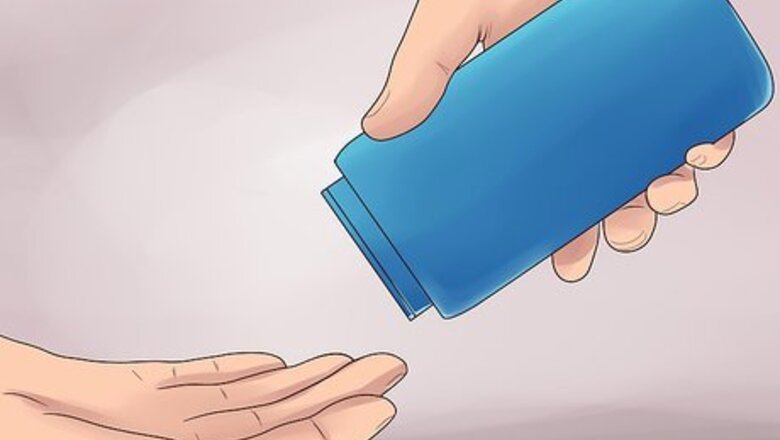
views
Drying Moist Hands
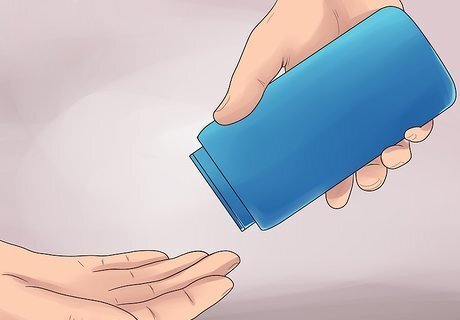
Use baby powder or another absorbent powder. One simple, direct, and fairly long-lasting way to get rid of unwanted hand moisture is simply to soak it up! You can do this a variety of ways, including applying an absorbent powder to your hands. Try pouring a thimble-sized amount of baby powder into your hands and spreading it around gently and evenly — you should immediately notice your hands feel cooler and dryer. Below are just a few more powders you may want to consider using: Chalk Talcum powder (note that talc can be poisonous if inhaled in significant quantities) Cornstarch (sometimes specifically used for this purpose in Hispanic countries, where it is called "maizena") Baking soda
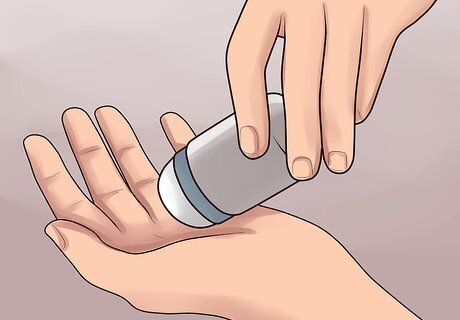
Use an antiperspirant on your palms. Many people apply antiperspirant under their arms every today to control underarm sweating. Believe it or not, you can get the same effect by spreading a little antiperspirant on your palms. Dry your hands by wiping them with a towel before you apply your antiperspirant so that it can do its job of plugging your sweat pores properly. Make sure to use an antiperspirant — not just a deodorant. Though the two products are often combined into one, they're not the same thing. The former fights excessive sweating, while the latter simply controls the odor from sweating. For the strongest effect, use an antiperspirant with aluminum compounds as its active ingredients. Aluminum is one of the strongest, most effective antiperspirant chemicals available. For serious situations, you may even want to investigate prescription antiperspirants (like Drysol) which have higher concentrations of aluminum.
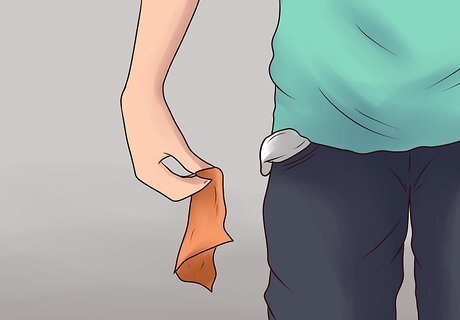
Carry a handkerchief or alcohol wipes. For mild cases of clammy hands, sometimes simply carrying around something you can use to soak up moisture throughout the day is enough to beat your clamminess. Cloth handkerchiefs make great re-usable hand towels, while disposable paper towels and alcohol wipes offer instant convenience. Though alcohol wipes are wet, they don't usually make hands moist in the long run. Alcohol evaporates very quickly, taking other sources of moisture with it as it leaves the hands. In fact, some people with delicate skin complain that alcohol wipes leave their hands feeling too dry for their liking.
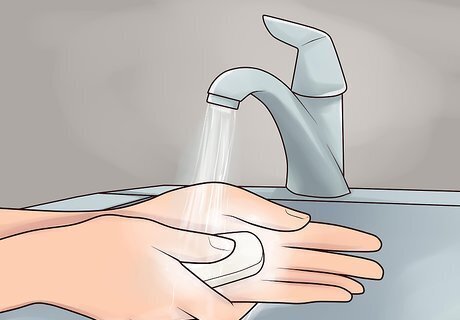
Wash your hands more frequently. If you're having a hard time keeping your hands dry, you may want to experiment with washing your hands frequently. Washing with soap and water can strip your hands of their natural oils, making them feel drier, so you may be able to get your hands drier in the long-term if you make a conscious effort to increase the number of times you wash your hands each day. Note, however, that frequent hand washing can sometimes leave hands too dry, especially if you use harsh bar soaps or soaps that contain detergent. If your hands become irritated or dried out from frequent washing, switch to a moisturizing soap — it's almost always more unpleasant to have raw, cracked hands than it is to have hands that are a little clammy.
Preventing Clammy Hands
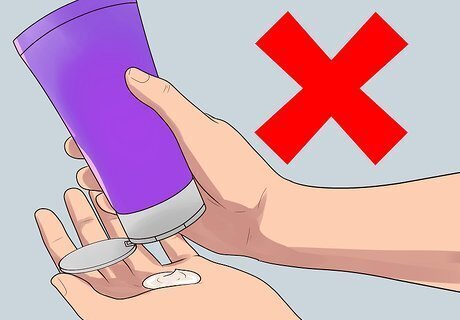
Avoid greasy lotions. If you frequently use lotion on your hands, you may be inadvertently making them clammy. While some lotions (like those that contain antiperspirant chemicals) can actually help dry your hands out, others can make them more moist. Some substances, like petroleum jelly, can even make your hands extra wet or greasy. If you use lotion frequently, consider switching your go-to lotion for one that's lighter or one that's specifically formulated to have a drying effect.
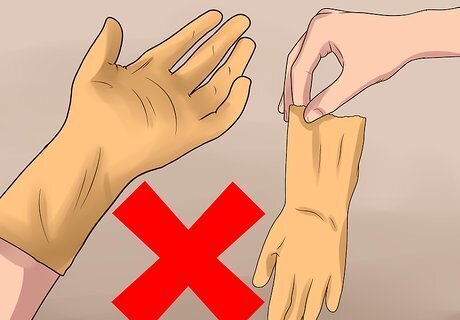
Avoid pockets and gloves. Gloves, pockets, and any other types of clothing that surround the hands can lead to excess sweating and moisture. These items trap moisture and heat against the hand, causing the hands to produce more sweat and making it more difficult for the sweat that is produced to evaporate. To fix this, simply leave your hands uncovered throughout the day when you can — their natural moisture should evaporate more freely. If it's too cold to leave your hands uncovered, try using fingerless gloves or gloves made out of a lighter material if possible. Ideally, these will keep your hands warm while allowing some air to reach them.
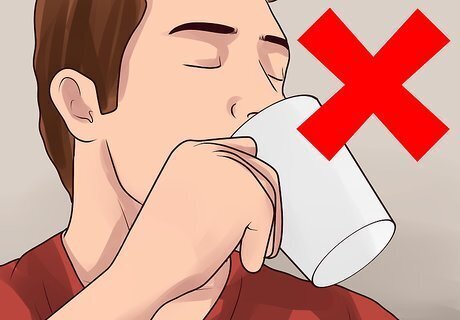
Avoid perspiration-causing food and drink. Sometimes, even something as simple as a person's diet can lead to excessive sweating. Certain foods can trigger a sweating response, which, if you're susceptible to clammy hands, can make your problem much worse. Consider avoiding the following food and drink items if they're frequent additions to your diet: Spicy foods: Believe it or not, hot, spicy foods trigger the same responses in your body that are caused by actual physical heat, often leading to sweating. Caffeine: Some people sweat if they consume excessive caffeine because the chemical stimulates the nervous system leading, to jumpiness, heightened activity, nervousness, and so on. The effect is often greatest when drinking hot caffeinated beverages. Alcohol: For some people, getting drunk or "buzzed" can lead to excessive sweating due to a process called vasodilation in which the body's blood vessels expand and increase the temperature of the skin, giving the feeling of warmth.
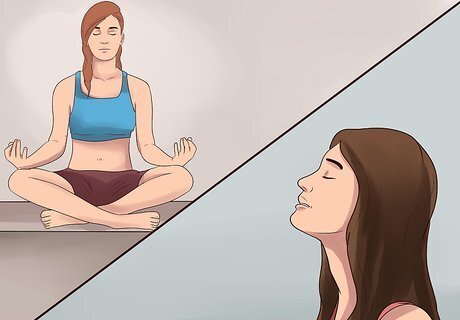
Lower your stress levels. For some people, sweaty hands aren't a symptom of a physical problem, but instead a reaction to sources of stress or nervousness in their life. In these cases, removing moisture from the hands is only a temporary solution — to get lasting relief, it's necessary to eliminate the underlying mental or emotional stresses. There's no single "right" way to do this — everyone's personal stresses are different — so if you think this may apply to you, try talking to your doctor or a licensed therapist for advice. Below are just a few techniques frequently prescribed to deal with stress: Yoga Biofeedback Meditation Giving up harmful habits or substances Making more/different social connections New exercise regimens Different work/life arrangements
Pursuing Medical Solutions
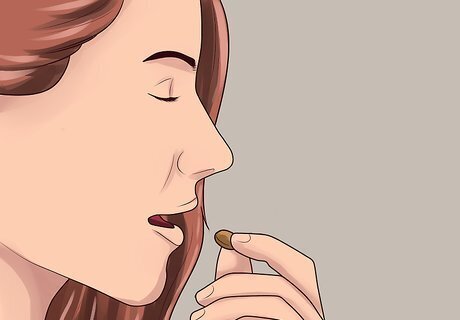
Consider asking for anticholinergics. If your sweaty, clammy hands are a serious problem and you haven't been able to eliminate them with basic home remedies or lifestyle changes, you may want to consider talking to your doctor about medical solutions. One class of drugs that can treat excessive sweating (and thus clammy hands) is called anticholinergics. These drugs work by blocking the action of a chemical called acetylcholine in the brain, which, among other things, controls the body's sweating. Note, however, that anticholinergics can have significant side effects, including: Higher body temperature Blurry vision Constipation Decreased saliva production Confusion Drowsiness
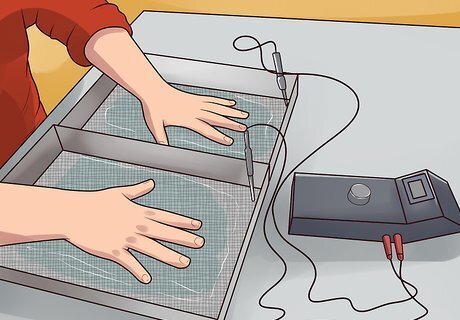
Consider iontophoresis. One relatively unobtrusive procedure that can treat clammy hands is called iontophoresis. In this procedure, the hands are submerged in water for about half an hour while a mild electric current passes through it. This closes the pores in the skin of the hands, decreasing sweating. The current is not usually strong enough for it to be painful. For best results, multiple repetitions are usually necessary. While iontophoresis doesn't usually cause side effects, in rare cases, it can cause dry skin, irritation, and/or blistering.
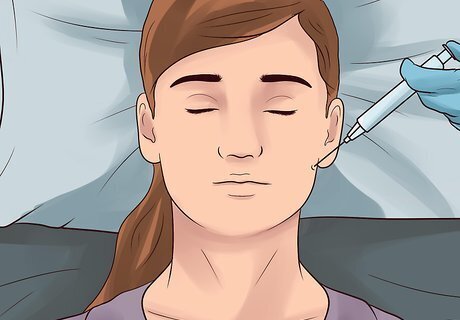
Consider botox injections. Though botox injections are most commonly known for their cosmetic uses, they can also be used to reduce sweating in certain cases. Botox treatments work by injecting a very small amount of a poison called botulinum toxin under the skin. In tiny doses, this toxin tightens the skin and interferes with a chemical that causes sweat glands to activate. Though it may take several applications, a regimen of Botox injections can prevent excessive sweating for over a year. Side effects from botox include: Bruising/redness at the injection site Headache Flu-like symptoms Muscle twitching/drooping In very unlikely cases, dangerous symptoms of botulinum toxin poisoning (trouble breathing, trouble speaking, vision problems, weakness)
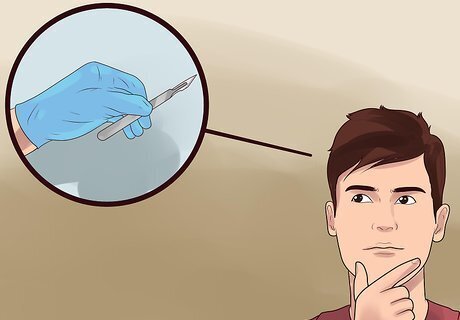
In extreme cases, consider surgery. For sweaty or clammy hands that won't respond to any other treatments and are a having a significant impact on a patient's quality of life, surgery can be recommended, although this is usually seen as an absolute last-resort. Endoscopic thoracic sympathectomy (or ETS) is a surgical procedure that involves cutting certain nerve pathways that cause sweating in the hands and under the arms. Though it's sometimes described as a "minimally-invasive" procedure, ETS is in fact a major surgery that requires general (whole-body) anesthetic. Though problems are rare, there is a small chance of serious complications or even death with ETS (as is there with any major surgery). Note that ETS is a permanent procedure — there is no way to reverse it once it's performed. In addition, it's important to know that the vast majority of people who undergo ETS for sweaty hands or underarms experience "compensatory sweating" (sweating that is as heavy or heavier than the original sweating) somewhere else on their body after the surgery.
Using Alternative Remedies
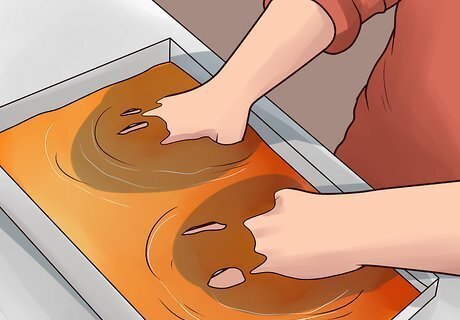
Try soaking your hands in tea. There are a number of "alternative" or "natural" remedies promoted as cures for clammy hands online. Though some practitioners swear by these solutions, there is very little scientific evidence (if any) supporting these cures' effectiveness. For one easy alternative cure, try soaking your hands in cool or lukewarm tea. For best results, soak your hands in tea (or hold onto wet teabags) for 30 minutes each day for a week.
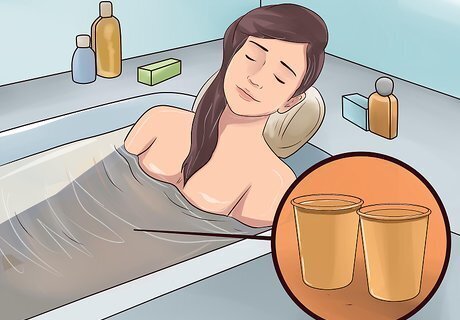
Try using apple cider vinegar. Another easy alternative remedy for sweaty hands involves apple cider vinegar. For this method, try soaking the hands directly in a bowl of apple cider vinegar for five minutes each, then washing with soap and water. Note that washing with soap and water is known to sometimes have a skin-drying effect on its own (see above). Alternatively, you may want to try running a bath and adding a cup or two of vinegar to the water before you get in.
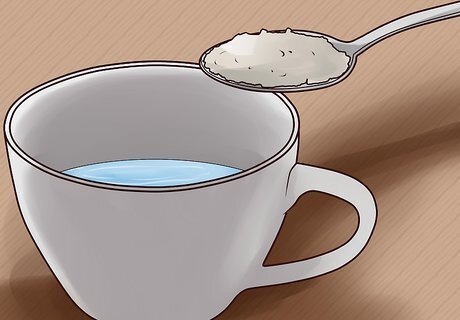
Try herbal cures. Some alternative medicine sources purport that consuming certain "detoxifying" herbs like turmeric, shatavari, and patola can help alleviate sweaty hands and/or feet. While some of these herbs may be used in traditional or non-Western medicinal cures (for instance, turmeric is known for its traditional use as an indigestion cure and anti-inflammatory), there is very little scientific evidence to support claims that they are reliable cures for clammy hands or any other condition. While most "detox" schemes provide little measurable or quantifiable benefit, note that some have even been found to cause harmful (though rarely dangerous) side effects.
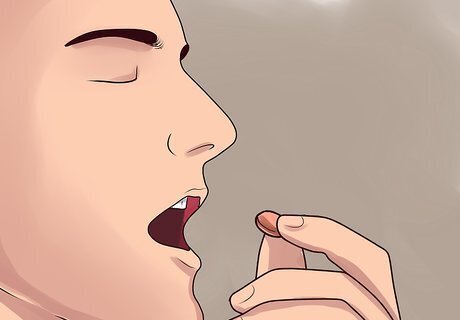
Consider homeopathic supplements or treatment programs. A simple search engine query can reveal dozens of so-called homeopathic or "natural" cures for sweaty hands. These cures are often in the form of herbs, vitamins, pills, supplements, or some combination of these elements. Though they are often advertised with bold claims about their effectiveness, in reality, very few (if any) homeopathic treatments have been scientifically proven to work. In addition, because homeopathic supplements aren't regulated by agencies like the FDA, there's no guarantee that they are held to the high quality standards that "normal" drugs are. For this reason, most doctors will advise against investing too heavily in homeopathic cures.


















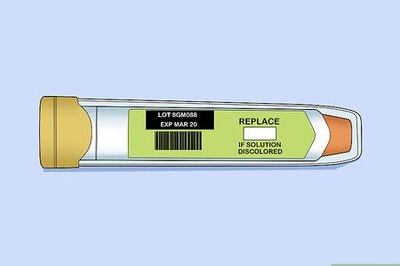

Comments
0 comment